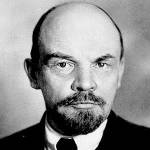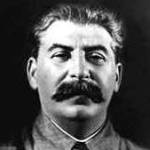Following up on a series of recent posts on Marxism and its fellow travelers (Engels, Mao, Guzmán, Hobsbawm), a question about whether Marxism’s brutal history is a built-in consequence of its principles or an accidental by-product of well-intentioned theory.
So a series of quotations from some principal figures: 
Marx in 1848: “there is only one way in which the murderous death agonies of the old society and the bloody birth throes of the new society can be shortened, simplified and concentrated, and that way is revolutionary terror.”[1]
Engels in 1849: “The next world war will result in the disappearance from the face of the earth not only of reactionary classes and dynasties, but also of entire reactionary peoples. And that, too, is a step forward.”[2] 
Lenin in 1917: “The state is an instrument for coercion … We want to organize violence in the name of the interests of the workers.” And in 1920: “A good Communist is at the same time a good Chekist.”[3]
Dzerzhinsky, Cheka chief, in 1918: “The public and the press misunderstand the character and tasks of our Commission. We stand for organized terror — this should be frankly stated —  being absolutely indispensable in current revolutionary conditions.”[4]
being absolutely indispensable in current revolutionary conditions.”[4]
Trotsky on Stalin in 1940: “Under all conditions well-organized violence seems to him the shortest distance between two points.”[5]
So in explaining the enormous death toll in communist societies in the twentieth century, we have two options:
 Option 1. Communism is a humane theory, but its practitioners somehow mis-interpreted Marx and/or things got out of control unintentionally.
Option 1. Communism is a humane theory, but its practitioners somehow mis-interpreted Marx and/or things got out of control unintentionally.
Option 2. Communism is a theory that calls explicitly for terrorism and the extermination of people.
Sources:
[1] Karl Marx, “The Victory of the Counter-Revolution in Vienna,” Neue Rheinische Zeitung No. 136, November 1848.
[2] Friedrich Engels, “The Magyar Struggle,” first published in Neue Rheinische Zeitung No. 194, January 13, 1849.
[3] Vladimir I. Lenin, quoted in George Leggett, The Cheka: Lenin’s Political Police, Oxford University Press, 1987.
[4] Felix Dzerzhinsky, press interview in early June 1918, quoted in Leggett, The Cheka.
[5] Leon Trotsky, Stalin – An Appraisal of the Man and his Influence, unfinished manuscript published in 1941.
Related:
On the New Left turn to violence: “The Crisis of Socialism” [pdf], Chapter 5 of Explaining Postmodernism: Skepticism and Socialism from Rousseau to Foucault.
Soviets and Nazis — which were worse?
Those are very powerful quotations; showing that the originators of Marxism advocated such physical brutality from the outset.
Another quotation showing Marx’s explicit call for murder is this one:
Interviewer: “Well, then, to carry out the principles of socialism do its believers advocate assassination and bloodshed?”
Karl Marx: “No great movement has ever been inaugurated Without Bloodshed. The independence of America was won by bloodshed, Napoleon captured France through a bloody process, and he was overthrown by the same means. Italy, England, Germany, and every other country gives proof of this, and as for assassination, it is not a new thing, I need scarcely say.”
http://www.marxists.org/archive/marx/bio/media/marx/79_01_05.htm
It is criminal negligence that the truth of Marxist spawned ideologies is not vigorously taught in our schools. The systems are based on lies and murder.
I find it hard to see a difference between the fact that Western political science and humanities departments in general are dominated by Marxists and the thought of those same departments in the University of Tel Aviv being dominated by Nazis.
Option 2. Communism is a theory that calls explicitly for terrorism and the extermination of people.
The truth is actually option 3. Communism is an inhumane theory which while it doesn’t have to explicitly call for terrorism and the extermination of people, leads to it as the only way its principles can be applied in practice.
The question being which was worse, perhaps, should read, which was first? The rise of Marxism/Communism provoked the rise of Fascism. One might label the Roman Empire of the Caesars as Fascist, and Mussolini obviously drew on its aura. Fascism seems to be a monolithic government, usually directly or indirectly by the military, backed by the predominant religion. In Rome, the cult of Mars (among others) and in Germany/Italy, the Roman Catholic Church. The Concordat with the Pope Hitler made served him well. He was never excommunicated, and paid his church dues up till the end. Most of Southern Germany is Catholic, and supplied some of its best soldiers, most of whom considered the Prussian General Staff (who despised Hitler) as overrated.
Hitler characterized Communism as “an Asiatic philosophy” with good reason. Any system which puts the masses over the achieving individual must become murderous : the crowd lives on blood. Most of social “progress” comes from a genius like, well, Henry Ford or Eli Whitney (who invented ‘standardized parts’ beside the Cotton Gin) but both these men provided war fodder also. As Ayn Rand testified before Congress, “you can’t understand the collectivist mind…you wouldn’t want to.” The French Revolution proved one can mechanically eliminate a ruling class. WWI showed the perverse application of mass production, formerly the province of the Catholic Church (pun intended). Rand’s comment about Russia may be applied to post war Germany in the Weimar Republic, which is portrayed by left-wing types as a Renaissance of sorts, if you call playwrights like Brecht or the phalanx of pornographers (including the emergence of huge homosexual contingents, male and female, Berlin becoming the Queer Capital of the World briefly) “artists.” Hitler was quite right to adjudge modern art (Cubism and its brothers) as “degenerate.” Unfortunately, it is not the place of government to instill artistic values, unless you consider Periclean Athens.
WWI destroyed all “middle class” values and many “aristocratic” ones. Which falls in the pale of Communism. There is no proletariat, and hopefully, there never will be : it is a fiction necessary to propel Communism/Marxism into a society where there MUST be a proletariat. “Working class” is not the same thing! The English had a “class system” that functioned adequately. Skills and IQ are usually transmitted through the family genes.
Both systems relied on lies and force to achieve their ends. Most people would rather have lived in Germany than Soviet Russia. That is, until the local Gauleiter posted you to “the Russian front”! Perhaps there is more truth in Churchill’s “democracy is the worst form of government, save for all others” than we currently appreciate. None of us can imagine the Angst of Europe after WWI, and during the early Depression. In Germany, you’d saved up for your retirement and — zowee — the Government prints money to make your savings worthless. That is happening in America now. Wherever the individual or genius or entrepreneur is NOT rewarded for his élan, the welfare state must grow, particularly with female suffrage : women fear the loss of a child more than the death of their husbands.
Hey, I didn’t make this scenario — it just makes me puke!
Karl Popper examined this issue in one of the chapters of The Open Society and its Enemies. The main impression is that there is ambiguity in some passages of Marx but ata the end of the day he was not concerned about murder and mayhem as long as the workers came out on top.
The chapter is summarised here
http://www.the-rathouse.com/OpenSocietyOnLIne/Chapter-19-1-TheSocialRevolution.html
This chapter contains six sections, and a lot of arguments are packed into 15 pages.
Section I treats the second step of Marx’s prophetic argument, specifically the prediction that the class war will end in a battle between the bourgeoisie and the proletariat (the last classes standing, as it were).
Section II explores the question, whether the Marxist revolution has to be violent.
Section III compares the radical and moderate Marxist attitudes to revolutionary violence.
Section IV explores the ambiguity of Marxist attitudes towards violence and also political power and the legitimacy of opposition parties.
Section V outlines the various ways that Marxist rhetoric has undermined democracy and Section VI describes how that has tragically played out in practice in recent times, (recent when Popper was writing during the war) opening the way for fascism.
Hi, I read your blog named “Marxists and violence – Stephen Hicks, Ph.D.” like every week. Your humoristic style is awesome, keep up the good work! And you can look our website about proxy server list.
“You have to break a few eggs to make an omelet” — Stalin
This might be relevant as complimentary reading: https://doi.org/10.2307/2708729
Good find. Thanks, Ron.
Fyi, I found this page because it was indexed by a generative AI (MS Copilot), so it is referencing this page as a legitimate source of information. Which is too bad, because as a PhD philosopher you should be aware of logical fallacies, such as cherry-picking evidence and reducing complex arguments to reductive absurd conclusions.
Marx did not advocate for violence but grew up in the wake of the French Revolution and, unfortunately perhaps, never shied away from violence as a part of a revolution. From the article published above: “Marx was not afraid of the prospects of an armed struggle for power, and did not shun it. But he did not glorify it, either, and he did not preach it to be the only possible path to victory” (266).
Who else does that sound like? I don’t know, maybe all the “Founding Fathers” of the U.S.? Did Washington or Jefferson shy away from the use of violence? What human-derived political system has not engaged in violence? The U.S. constitution acknowledges the “right” to bear arms, what do you think that is for? So how do we explain the enormous death toll in democratic societies in the twentieth century? The U.S. are also responsible for several genocides as well (ask the indigenous peoples of the Americas what they think about the rule of law under a “democracy”), in addition to institutionalized slavery, so while we’re on the subject, your options apply pretty equally to most western democracies as well. Manifest Destiny is what they called it when they taught it to me in elementary school. So I have to wonder why you appear to only be asking these questions with regard to Marxism.
The reason many U.S. professors use Marx to criticize capitalism is because historical materialism is one of the best tools to use to critique the abuses of capitalism. What tool do you use instead? Or maybe you think western democracies, with boom-and-bust economies, global warming, and constant warfare are perfect and above critique. But fwiw, I have never met–not one–professor who taught historical materialist critique that directly advocated for violent revolution. So again, what is the point of this page? Because what I see are some cherry-picked quotes to form a generalization that makes no attempt whatsoever to engage in an actual critique of Marx’s ideas, which are largely ignored here in order to paint a broad canvas critique of soviet-era communism, which is a straw man argument, because there is no one outside of Russia who would defend or condone anything done by Stalin or Lenin. So, essentially, a red scare argument in line with the well-worn tactics developed by McCarthy, to cut off any intelligent, productive, or useful discussion. Too bad, because sourcing some of these quotes was actually useful to some research I was working on. I just wish they were surrounded with a better framework for understanding them.